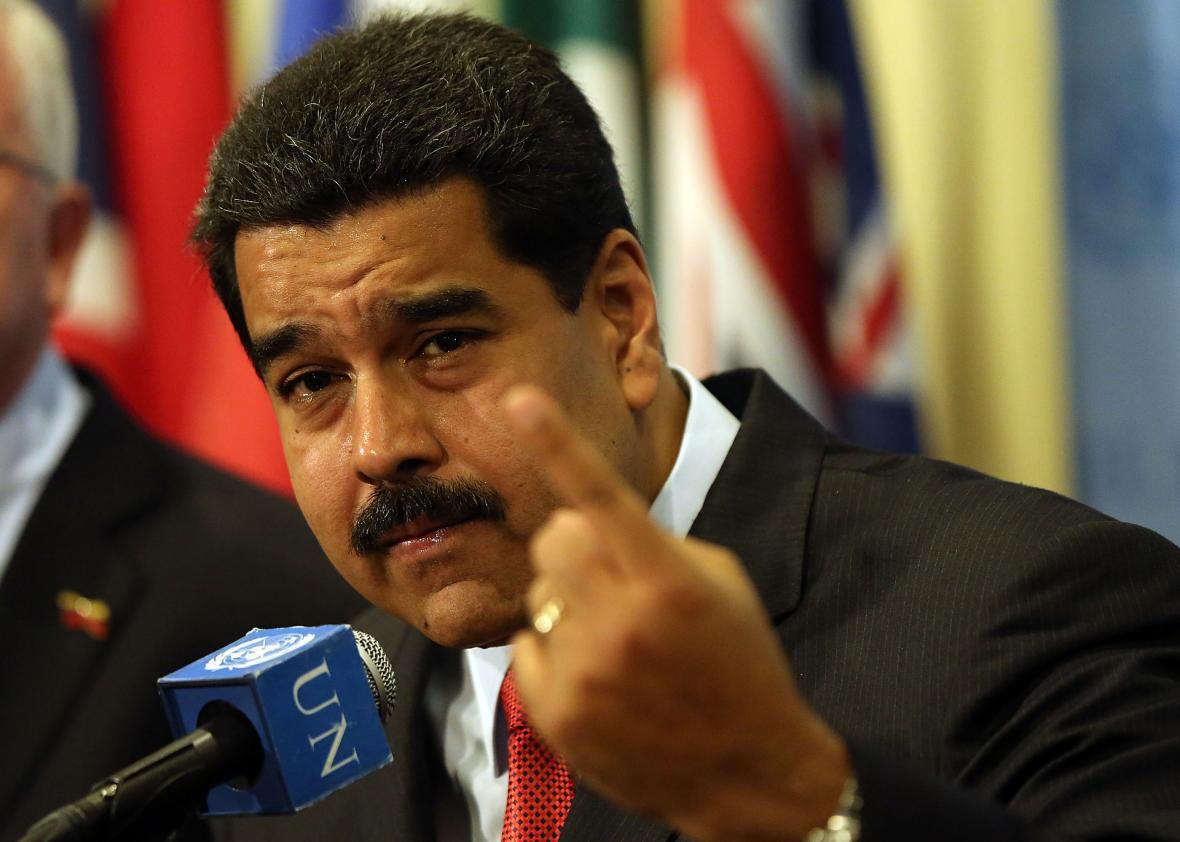Venezuela’s yearslong economic disintegration hit a sad new milestone on Tuesday, when President Nicolás Maduro announced that government employees would work only on Mondays and Tuesdays for at least the next two weeks to save scarce electricity. Previously, Maduro had given the public sector Fridays off in a bid to conserve power. The country’s severe energy shortage stems from a massive drought that has decimated the water levels at El Guri, the hydro-electric dam that provides a staggering 65 percent of the nation’s electricity. The government in Caracas has also started scheduling rolling, four-hour blackouts around the country.
Venezuela’s drought is but one result of the extreme El Niño phase that’s led to a rise in global temperatures this year and last, leaving almost 100 million people around the world short on food and water. (Maduro, characteristically, has pointed to sabotage by his political foes as the reason for Venezuela’s shortages.) But the collapse of the country’s power grid also seems to be the result of garden variety corruption and mismanagement. As the Wall Street Journal notes, since 2008 the government has spent many billions on new energy infrastructure, including a hydropower plant that still isn’t running. “A former high-ranking official who worked on electric projects said the government routinely overpaid for equipment and for poor-quality thermoelectric plants that are unable to offset the decrease in hydroelectric power,” the paper reported.
The drought has done more than just shut off Venezuela’s lights. Reservoirs are running dry and many in the country have found their homes waterless for weeks. Again, botched infrastructure projects, such as a $180 million deal with Iran to build a water pipeline that was never laid, seem to be part of the problem.
These are just the latest of many man-made miseries that have befallen Venezuela. When President Hugo Chávez passed away in 2013, he left behind a stunted national economy almost wholly dependent on oil production. As a result, the collapse of crude prices has been disastrous. All the while, an ill-advised system of currency and price controls, partly meant to curb inflation, have led to shortages of basic goods and a thriving black-market economy. And about Venezuela’s inflation rate: It’s currently the worst in the world, spurred on, it seems, by desperate money printing from a revenue-strapped government. This year, inflation is expected to hit 500 percent. The situation is so bad that the government appears unable to pay for the new bills it has ordered from foreign currency makers (because, like almost all things, Venezuela has to import its money). As Bloomberg put it in a headline Wednesday, “Venezuela Doesn’t Have Enough Money to Pay for Its Money.”
Somehow, it seems unlikely any workers there will be enjoying their days off.
